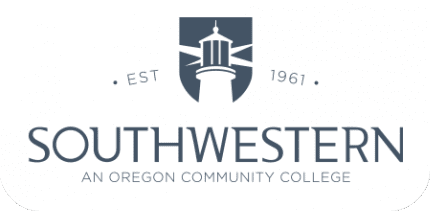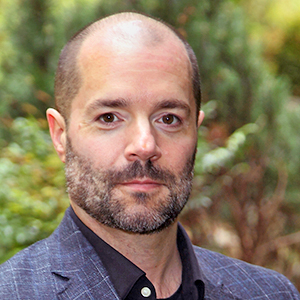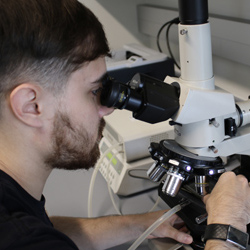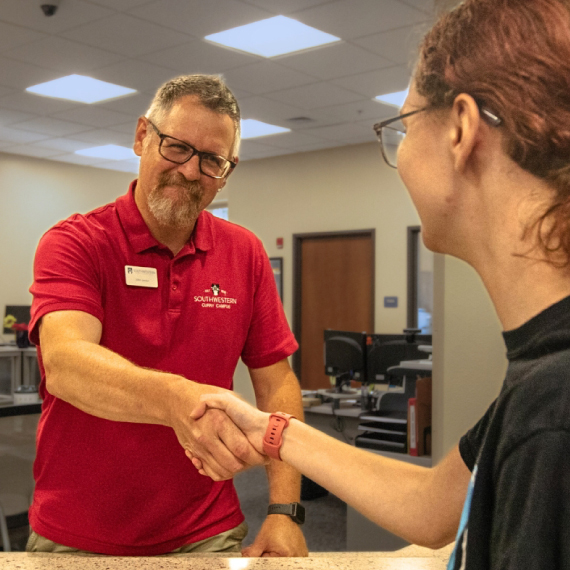College Foundation
Our Stories

Brian K. Chaney
2025 Distinguished Alum
Class of 1992

What do these Nurse alums have in common?
They love serving our coastal communities
From Brookings to Reedsport

Tristan Perrotti
Guest Artist in Residence
Foundation, college create innovative project
Our Projects

Help us build a new
diesel mechanic training shop

Investing in fire science
Foundation supports training tower

Congratulations 2025-26 Foundation Scholarship Recipients
Our Volunteers
FAQs – Frequently Asked Questions
Is the Southwestern Foundation a nonprofit organization?
Yes, Southwestern Oregon Community College Foundation is a 501(c)(3) organization.
The tax ID number is 93-6031563. Donations to the foundation can be tax-deductible.
Southwestern Oregon Community College Foundation does not discriminate on the basis of race, color,gender, sexual orientation, marital status, religion, national origin, age, disability status, gender identity,or protected veterans in employment, education, or activities as set forth in compliance with federaland state statutes and regulations.
Can I make an anonymous gift? Will my gift make a difference?
Every gift has the potential to make a difference and inspire others.
Gifts show the community that alumni and friends care about our college and its mission to inspire our students in lifelong learning.
Think about what you want your gift to accomplish. Do you want to benefit students directly? Is there a program that you want to support? Do you want to help students specifically on one of our college’s campuses?
Give us a call and when can talk about your ideas options.
Can I see Audited Financial Statements?
Can I see the Foundation’s Governing Documents?
Who can I talk to about making a gift ?
If you know one of our Foundation trustees, feel free to start the conversation with them.
Or, if you prefer, please call our foundation office at 541.888.7211 or 541.888.7209 to discuss options and ideas for ways to benefit students, programs or the college’s Coos or Curry campuses.
For planned giving and large donations, it is best for us all to plan in coordination with an attorney, financial advisor and an accountant. Planned gifts can make good financial sense and provide tax advantages. Planned giving can occur throughout your life, or at end of life through estate planning.
Ways to Give
Give monthly or annually
You may give the gift of cash in the form of a check or by way of credit card at any time. Gifts to the Foundation’s Annual Fund are unrestricted and give the Foundation more flexibility to allocate funds to the areas of highest need. Donations can be made online or by mail to:
SWOCC Foundation
1988 Newmark Avenue
Coos Bay, OR 97420
Corporate donations
Many companies will match an employee’s charitable contribution to the Southwestern Foundation. Check with your company’s policy to explore the possibilities.
Payroll deductions
Southwestern’s staff and faculty contribute to scholarships and programs funds through monthly payroll deductions. This is an opportunity for staff and faculty to support students in need and fund innovative programs and equipment needs. Check with the foundation office for details.
Create an annual scholarship or permanent endowment
There are many flexible options for individuals, families, organizations and businesses to support students and programs through annual scholarships and permanent endowments.
When an individuals or an organization create a named endowment scholarship, it is established forever. This is a very special way to honor a family member or friend. It ensures a person’s values and interests are preserved into the future.
An endowment can be started with a single gift or a combination of gifts over four years totaling at least $10,000. The principal of the fund is never spent. It is invested for income and growth, with annual distributions paid from the endowment growth to support the interests of the donor.
Donate in-kind or equipment
The Foundation accepts in-kind gift donations. To discuss a possible donation to the Foundation or College, please contact the Foundation to discuss feasibility and options. These donations go toward assisting our faculty in delivering an excellent education, while helping our students reach their educational goals.
Corporate donations
Corporate donations can strengthen programs that build a more educated and skilled workforce. They create opportunities for community members of all ages to participate in and experience the arts, educational and recreational endeavors.
Corporations also have the ability to achieve long-term recognition by partnering with the college in equipment investments and capital construction projects. These partnerships can bring lasting community benefit for decades.
Corporate donors also receive public thanks and recognition in various outreach efforts.
Make a charitable donation from your Individual Retirement Account (IRA)
If you are 72, you are required to make distributions from you IRA account. Donating to a 501(c)3 nonprofit such as the Southwestern Foundation may have tax benefits for you.
Ask your financial administrator (ex: Edward Jones, Morgan Stanley) to make a direct distribution to SWOCC Foundation.
Talk with your accountant. A donation may reduce your taxable amount of distribution for the year, without needing to itemize. You or your tax preparer will make that adjustment on your tax return. The deduction is limited to no more than $100,000.
Donate stocks and bonds
Some donors find it convenient to make an Outright Gift of stock to the Foundation. This can make good financial sense. There can be tax advantages.
Tax laws allow a donor to deduct the entire market value of the stock, including capital appreciation. This works because a charitable organization is able to liquidate the stock for its full value. As a result, your donation is counted at the full stock value at the time of sale and the income tax is lower since you deduct the gift amount from your income. You also are not subject to capital gains on the appreciation.
Make a Real Estate gift
Make a Bargain Sale
Say you want to sell a home, either your main residence or other property. You certainly can exclude part of the capital gains tax on your main residence’s appreciation in value if you meet certain qualifications. What about a home that’s not your residence? A Bargain Sale may provide a way to contribute to Southwestern and receive tax advantages.
The Bargain Sale rule in tax law applies when you sell a property to a qualified charitable organization, such as the College Foundation, at a price below market value. The difference between the market value and sale price qualifies as the charitable contribution. The key benefits are:
- Income tax savings on the difference between market value and final sale price.
- Capital gains tax reduction – The long-term appreciation in the gift property is prorated between the sale and gift portions. You only pay capital gains tax on the “sale” part, not the “gift” part. Plus, the savings on your income tax deduction on the “gift” portion may offset the capital gains on the “sale” portion.
- Less worry – You receive cash promptly and don’t have to worry about selling the property.
Gift a home, commercial real estate or property
For some donors, a present or future real estate gift offers the opportunity to greatly benefit the college, but also qualify the donor for valuable income tax and estate tax savings. It also can free the donor of the burdensome tasks involved in selling the property or leaving it to estate liquidation.
- Tax considerations – If you make an outright real estate gift, you would avoid capital gains tax on a property sale. You also would receive an income tax charitable deduction equal to the property’s full fair market value instead of the low cost basis. The deduction lets you reduce the cost of making the gift and frees cash that otherwise would have been used to pay for taxes and upkeep. Also, you avoid the tax on the property’s appreciation, the transfer isn’t subject to the gift tax and the gift reduces the size of your taxable estate. The real estate gift deduction generally is limited to 30% of a donor’s gross income, with a five-year carryover of the unused deduction.
- When to give – If you’d like to occupy and enjoy the full use of your home for life, you can still secure a current charitable deduction by deeding a remainder interest in the property to the College Foundation. The personal residence rules also apply to a farm, vacation home, condominium or stock in a cooperative housing corporation – if used by you. A farm may include acreage with or without the house.
Donate your home as a Retained Life Estate
You can gift your home, receive a charitable deduction for it and avoid being subject to capital gains tax – even though you plan to continue living there. This is called the “Retained Life Estate.”
- Immediate tax savings – While you can live in your home the rest of your life, you also could consider retaining the right to rent it or allow a survivor to enjoy life occupancy. By deeding your home to the Foundation now, subject to any of these rights, you can still obtain a sizable income tax deduction this year. The amount depends on the property value and your age or the age of a person given life use. The same deduction opportunity is available for a farm, vacation home, condominium, or stock in a cooperative housing corporation if the property is used as a personal residence.
- Estate tax savings – When you leave the home to your spouse through a will or joint ownership, it’s generally not subject to federal estate tax. However, if you want one of your children, relative or friend to live in the home after your lifetime, you would pay a substantial tax to leave them the property. The Retained Life Estate provides a way to let someone other than your spouse have occupancy without associated tax payments.
- Partial use tax savings – If you have a home you don’t occupy year-round, such as a vacation home, you can make a deductible gift to the Foundation of an undivided interest, allowing the Foundation exclusive use of the property for part of each year. As a result, you would be entitled to an income tax charitable deduction based on the use percentage of the property’s fair market value.
Give Life Insurance
Many people would like to make a substantial donation to support the Foundation and College, but feel they’re not in a position to give up a large portion of their income. A gift of life insurance can be the best way to make a large gift to the Foundation at a small cost to a donor. Here are benefits to consider:
- Decrease taxes – through an income tax charitable deduction when you name the SWOCC Foundation as the beneficiary and assign the Foundation ownership.
- Increase spendable income – when you no longer have to pay the policy premiums. Or, make the gift and continue paying the premiums and you’ll be able to claim the premium amount as an annual tax deduction.
- Reduce estate taxes – when the proceeds are completely removed from your taxable estate, as long as you do not retain any ownership.
- Easier to arrange – Transferring policy ownership does not require the legal expense of preparing a will or codicil.
If you’re still building your estate or have a young family, you may need to keep your life insurance for your children’s financial protection until they are on their own and or until there are sufficient assets to protect your spouse. There still may be ways to leverage a life insurance policy to benefit the Foundation. Options include:
- Name the Foundation as one of the beneficiaries by percentage.
- Name the Foundation as a contingent beneficiary. That means the Foundation would receive the proceeds should a primary beneficiary die before the donor.
- Create a trust to receive the policy proceeds. Then the funds are invested for a family member’s support after the donor’s lifetime. When that person dies, the trust remainder is paid to the Foundation.
While these three options will not entitle you to an income tax deduction, they will satisfy a donor’s desire to use the policy for family responsibilities and support the Foundation later.
Gift retirement plan assets
Did you know Retirement Plan Assets face double taxation? If you leave the assets to heirs, the asset is diminished by both estate taxes and the recipient must pay income taxes on the inheritance.
Undoubtedly, a donor’s decision to donate the remainder of retirement assets depends on family members’ circumstances. Their needs come first. However, for donors who make other provisions for family, charitable gifting can be an excellent option for use of retirement assets.
- Types of retirement plans – There are two types of qualified retirement plans: annuity or individual account plans. Annuity plans are generally referred to as defined benefit plans.
- They pay regular retirement income to a participant. Since these payments typically terminate upon the death of the participant or surviving spouse, there’s usually nothing available to give to a charitable organization.
- Individual account plans resemble tax-sheltered savings accounts (individual retirement accounts, 401(k)s, money purchase plans, profit-sharing plans and employee stock ownership plans). If a participant dies before the entire account is paid out, the remaining balance can be transferred to a charitable organization or heir.
- Avoiding tax impact – After your lifetime, the undistributed balance in a retirement plan account is distributed and taxed to someone else, either your estate or an heir. Because a charitable organization, such as the Foundation, is tax-exempt, the deferred income in your qualified retirement account may never be taxed if you name the Foundation as a beneficiary. That way, you ensure 100% of your retirement plan assets will support your philanthropic objectives.
- How to donate a retirement account – To leave the balance of an account to the Foundation after your lifetime, simply advise the plan administrator of your wish and sign the required form. For an IRA or Keogh plan you administer personally, notify the custodian in writing and keep a copy of the notice with your valuable papers.
- If you’re married, your surviving spouse is usually entitled to receive the entire amount in certain qualified plans, except IRAs. Your spouse may be willing to execute a written waiver, or after your death, a qualified disclaimer. You also could name the Foundation as a second or percentage beneficiary.















